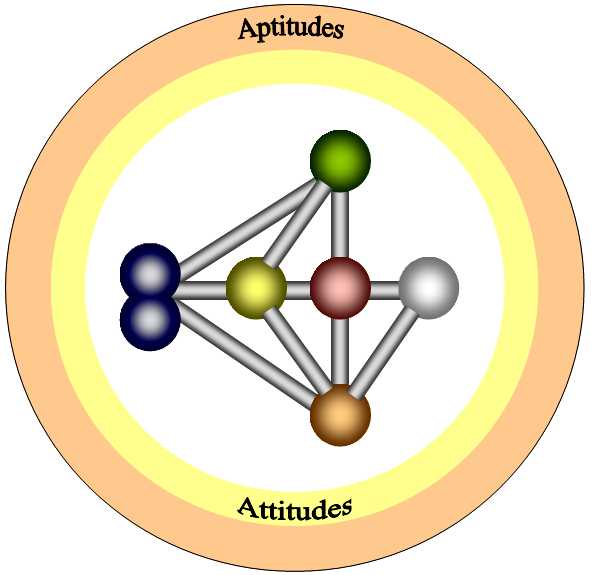| |
Elementary Model of Organisational Processes (EMOP) [Download]

A brief explanation of the model can be found » here «.
Leadership never links directly to an organisation’s results. By definition, within organisational processes, leaders must incite others to achieve desired results. However, organisation members’ behaviour is guided and influenced by more than leadership alone. Central to this dissertation are the elementary aspects of organisational processes. Part of this research consists of examining what influences organisation members’ behaviour, how this takes place and how organisational results come about. These aspects are brought together in an Elementary Model of Organisational Processes (EMOP), which also illustrates how those aspects tend to relate to one another. A method is developed to quantify those elements and to measure them within organisations. Furthermore, examination has taken place into practical application of such measurements on behalf of leading and developing organisations.
Next to the elementary aspects of organisational processes, behaviour of organisation members is affected strongly by their Aptitudes and by their Attitudes with regard to certain aspects. As such, those aptitudes and attitudes both enable and constrain organisation development. To achieve optimal leadership effectiveness, organisation development and organisation effectiveness, organisation members’ aptitudes must be relevant within an ensemble of available and suitable procedures and tools, and this unity must be directed towards reaching commensurable goals.
True leadership requires setting goals and bringing other people to work towards reaching those goals. To do so successfully, the goals must be clear, achievable and inspiring. No two individuals are exactly the same. What is clear, achievable and inspiring to one, is unclear, unachievable and uninspiring to another. This poses a continuous challenge to leadership, aspiring to foster an organisation’s functioning, raising questions such as: “Why don’t they do as I say?”, “Why aren’t we getting the expected results?”, and: “How can I get a more contented workforce?”
The Elementary Model of Organisational Processes (EMOP) describes what determines an organisation's functioning. Its underlying propositions explain how to establish the status of those determinants before, during and after organisation development activities, as well as how to utilise that information on behalf of organisation development, fostering organisation effectiveness.
More information »»
  
|
|





